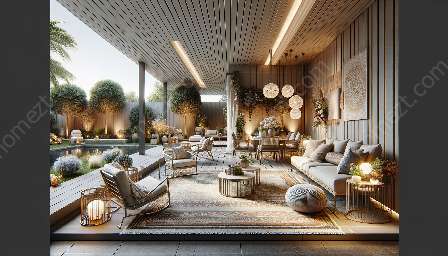When designing a cohesive space, it is essential to consider the ethical implications and responsibilities associated with creating a harmonious and thoughtful environment. This includes the ethical considerations in relation to creating a cohesive design and decorating. By understanding and incorporating these ethical principles, designers can ensure that their work contributes positively to the well-being of occupants and the environment.
What are the Ethical Considerations?
Designing a cohesive space involves making decisions that have an impact on various aspects of human life, including social, environmental, and personal well-being. The following are some key ethical considerations to be mindful of during the design process:
- Social Justice and Equity: Designers should be mindful of creating spaces that promote inclusivity, accessibility, and diversity. This involves considering the needs of all individuals, regardless of their background, ability, or circumstances.
- Environmental Sustainability: Ethical design requires prioritizing environmentally friendly materials and practices, minimizing waste, and promoting sustainability in all aspects of the design and decoration process.
- Human Well-being: Designers should prioritize the health and safety of occupants by considering factors such as ergonomics, air quality, natural lighting, and acoustics in the design of the space.
- Cultural Sensitivity: Respect for cultural heritage and local traditions should be integrated into the design to ensure that the space is inclusive and respectful of diverse cultural backgrounds.
The Relationship with Creating a Cohesive Design
Ethical considerations play a vital role in creating a cohesive design. By integrating ethical principles into the design process, designers can achieve a sense of harmony and balance that extends beyond the visual aesthetics of the space. Ethical design encourages thoughtful decision-making, which results in a cohesive space that not only looks harmonious but also feels inclusive and sustainable.
Considerations such as social justice, environmental sustainability, and human well-being directly contribute to the creation of a cohesive design. For example, by prioritizing accessibility and inclusivity, designers can ensure that every individual feels welcomed and empowered within the space, leading to a cohesive and unified environment.
The Implications for Decorating
When it comes to decorating a cohesive space, ethical considerations come into play in various ways. Ethical design principles guide the selection of decor, materials, and furniture to ensure that the space is not only visually appealing but also socially and environmentally responsible.
For instance, ethical considerations may influence the choice of sustainable and non-toxic materials for decorations, as well as the sourcing of products from fair trade or local artisans to support ethical and responsible practices. By aligning decorating choices with ethical principles, designers can create a cohesive space that reflects integrity and compassion.






































